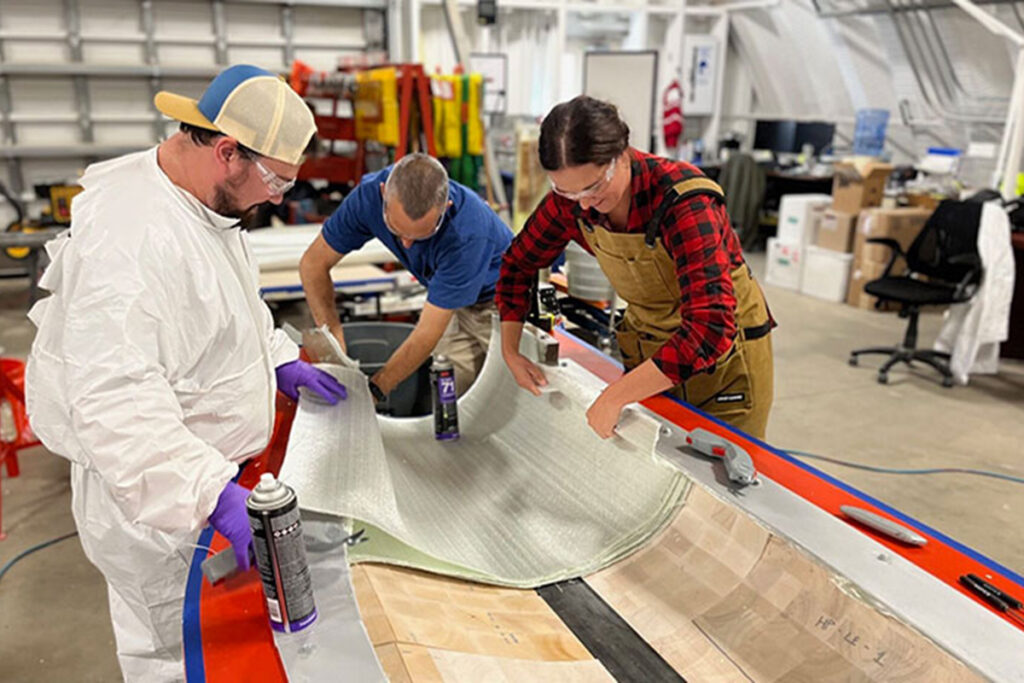EarthTalk®
From the Editors of E – The Environmental Magazine
Dear EarthTalk: I hear that there are thousands of damaged and spent wind turbine blades piling up in Texas. Is this waste an issue for the wind industry? — Bill Collins, Big Sandy, TX

In the West Texas town of Sweetwater, about 40 miles west of Abilene on Interstate 20, there is a field filled to the brim with unwanted wind turbine blades. The first of these blades were deposited in 2017 and over the years the blades have accumulated to cover over 30 acres of land. Each of the blades is between 100 and 400 feet in length and thousands cover the area. Residents of Sweetwater have protested the industrial landfill saying it is a hazard to residents. They worry about children playing in the garbage, swarms of mosquitoes breeding in the blades and rattlesnakes hiding in crannies of the unwanted blades.
Wind power has grown fast, making it the world’s leading renewable energy option behind hydropower. The wind turbine blades are built to withstand the power of the elements for decades, but once they are decommissioned, they generally become waste. By 2050, turbine blades are expected to become nearly 43.4 million tons of trash. While about 90 percent of wind turbines themselves are recyclable, the blades are not. They are made by binding fiberglass together with epoxy resin, so they are difficult and expensive to break down. Because of this most blades end up incinerated or in landfills like that of Sweetwater.
Decommissioned blades are difficult and expensive to transport. Because of their size, they need to be cut up onsite before they can be moved. Most U.S. landfills don’t have the space to take wind farm waste. Most of the time blades cannot be crushed either because most crushing equipment isn’t big enough.
Some companies have been trying to find solutions to the growing issue of unused turbine blades. Vestas, one of the world’s biggest wind turbine manufacturers, has supposedly found a groundbreaking new method to recycle turbine blades. In 2023, the Danish company announced that it had found a way to break the plastic in turbine blades down into virgin-grade materials. This solution would allow blades to be recycled to make new turbines instead of cluttering landfills. While it sounds promising, Vestas has so far divulged little information about how this would work.
Another possible solution would be to grind old blades up and use the material in other manufacturing industries. The drawback is that the blades are huge and difficult to crush, plus the material isn’t really worth the hassle of crushing them. Veolia, a resource management company headquartered in France, shreds and blends blade materials to turn them into an ingredient for cement production. According to Veolia, using this technique reduces the pollution produced in cement manufacturing by 27 percent.
Implementing these types of solutions on a larger scale could help drastically reduce the amount of waste created by the wind industry. In the meantime, environmentalists are cheering on the wind industry to create new turbines that are easier to break down and reuse.
CONTACTS: Thousands of Old Wind Turbine Blades Pile Up in West Texas, https://www.texasmonthly.com/news-politics/sweetwater-wind-turbine-blades-dump/; Unfurling The Waste Problem Caused By Wind Energy, https://www.npr.org/2019/09/10/759376113/unfurling-the-waste-problem-caused-by-wind-energy; Wind energy has a massive waste problem. New technologies may be a step closer to solving it, https://www.cnn.com/2023/05/28/world/wind-turbine-recycling-climate-intl/index.html.
EarthTalk® is produced by Roddy Scheer & Doug Moss for the 501(c)3 nonprofit EarthTalk. See more at https://emagazine.com. To donate, visit https://earthtalk.org. Send questions to: question@earthtalk.org.
